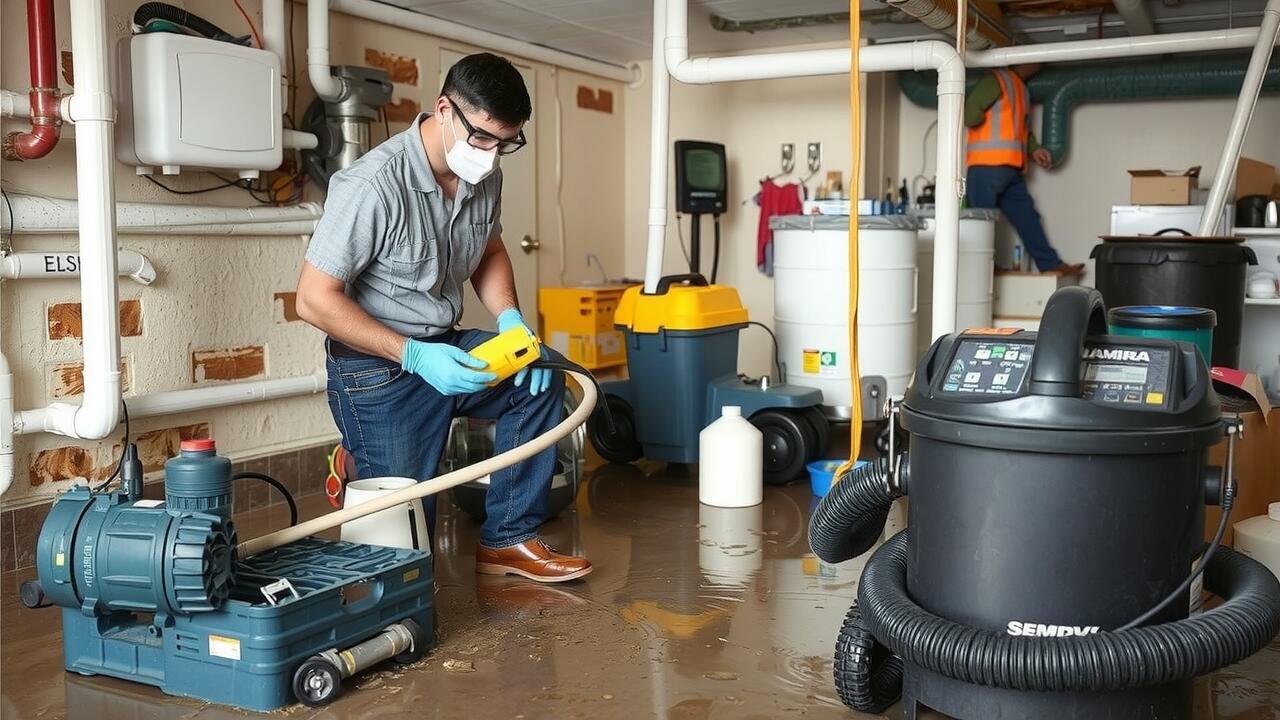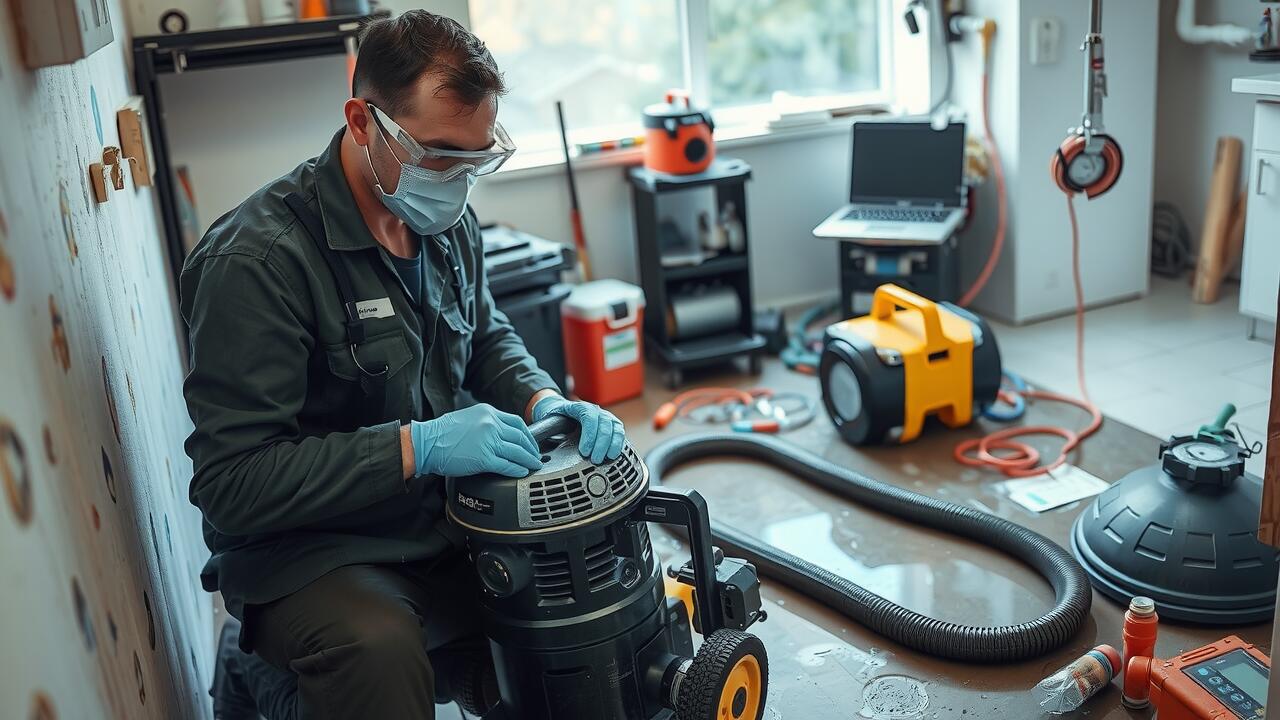
The Importance of Reviewing Your Policy
Homeowners insurance policies can vary greatly in their coverage options, making it crucial for homeowners to carefully review their own policies. It’s not uncommon for standard policies to exclude coverage for specific events like sewer backups unless added as an endorsement. Understanding these nuances helps individuals make informed decisions about their coverage needs, especially if they live in areas prone to such issues.
In Reynoldsburg, Ohio, the risk of sewer backups may be influenced by factors specific to the region’s infrastructure and environmental conditions. Homeowners should assess their risks and determine if additional coverage for sewage backup is necessary. Having a clear understanding of what is included in their policy can help when seeking services for Sewage Backup Restoration in Reynoldsburg, Ohio.
Identifying Specific Coverage Provisions
When reviewing your homeowners insurance policy, it’s crucial to clearly identify if it includes coverage for sewage backups. Many standard policies exclude this type of damage or provide limited protection. Homeowners often assume that their general liability coverage extends to sewer issues, which is not always the case. Checking your policy’s fine print will help you understand your specific coverage provisions and any potential exclusions.
In areas like Reynoldsburg, Ohio, where sewer systems can be old or prone to failure, knowing the details of your policy can save you significant financial strain. If your policy does not cover sewage backups, consider options for supplemental insurance that might offer the necessary protection. Additionally, look into local services like Sewage Backup Restoration in Reynoldsburg, Ohio, to understand the typical costs and processes involved in addressing such issues.
Assessing the Risks of Sewer Backups
Sewer backups can pose significant risks to homeowners, leading to costly damages and health hazards. Common causes include heavy rainfall, clogged pipes, and aging sewer systems. In areas like Reynoldsburg, Ohio, where infrastructure can be under strain from weather changes, understanding these risks is essential. Homeowners must be vigilant about maintenance and take preventative measures to mitigate potential issues.
It’s crucial to recognize warning signs that might indicate a problem, such as slow drains or unusual odors. Ignoring these signs can lead to more severe consequences. For those affected, professional services like sewage backup restoration in Reynoldsburg, Ohio, become vital in addressing the damage and ensuring a safe living environment. Being proactive about these risks can save homeowners significant stress and financial burden in the future.
Factors Contributing to Sewer Malfunctions
Sewer malfunctions can stem from a variety of issues, often leading to backup situations that homeowners must address. Blockages in pipes due to tree roots, grease buildup, or foreign objects can significantly hinder flow, resulting in overflow. Aging infrastructure also plays a crucial role, as older pipes may be more susceptible to cracks and deterioration, increasing the likelihood of backups. Heavy rainfall can exacerbate these conditions, overwhelming local systems and causing untreated sewage to backflow into homes.
In many areas, especially where development has outpaced infrastructure upgrades, the risk is heightened. Homeowners in Reynoldsburg should be particularly vigilant about their sewage systems, as local conditions can vary. Regular maintenance and inspections can help identify problems before they escalate, minimizing potential damage and the need for extensive repairs. When a backup occurs, seeking professional services such as Sewage Backup Restoration in Reynoldsburg, Ohio, can greatly reduce recovery time and mitigate further risks to property.
How to File a Claim for Sewer Backup Damage
Filing a claim for sewer backup damage begins with gathering all relevant information about the incident. Homeowners should document the extent of the damage by taking photographs and writing detailed notes about the circumstances of the event. This information will be essential for the insurance adjuster when assessing the claim. Additionally, keeping records of any expenses incurred during the cleanup process is crucial. Contacting professionals for sewage cleanup, such as those specializing in Sewage Backup Restoration in Reynoldsburg, Ohio, can provide further documentation and assistance.
Once documentation is complete, homeowners must contact their insurance provider to initiate the claim. It’s important to inform them about the incident and provide the collected evidence. The insurer may send an adjuster to inspect the damage firsthand. Homeowners should remain accessible for follow-up questions and provide any requested documentation promptly. Clear communication throughout this process can help ensure that the claim is processed smoothly and efficiently.
Documenting the Incident
Proper documentation is essential when dealing with sewer backup incidents. Homeowners should begin by taking photographs of any visible damage, including affected areas, personal belongings, and any standing water. These visual records can serve as critical evidence when submitting a claim to the insurance company. It is also advisable to keep detailed notes of the events surrounding the incident. This includes dates, times, and the sequence of actions taken to address the situation, such as contacting professionals for assistance.
In Reynoldsburg, Ohio, homeowners should also consider hiring services specializing in sewage backup restoration. Obtaining estimates and written reports from these professionals can further strengthen your claim. Keep copies of all correspondence, receipts, and invoices related to the restoration efforts. This comprehensive collection of documentation not only aids in filing an insurance claim but also helps clarify the extent of damage incurred and the necessary steps for remediation.
FAQS
Does homeowners insurance typically cover sewer backups?
Most standard homeowners insurance policies do not cover sewer backups unless you have specifically added this coverage or it is included in your policy.
How can I find out if my policy covers sewer backups?
You can review your homeowners insurance policy documents or contact your insurance agent to inquire about specific coverage provisions related to sewer backups.
What factors might affect coverage for sewer backup damages?
Coverage for sewer backups can be influenced by the specific clauses in your policy, local laws, and the cause of the backup, such as whether it was due to maintenance issues or natural disasters.
What steps should I take if I experience a sewer backup?
If you experience a sewer backup, you should document the incident with photos, contact your insurance company to file a claim, and arrange for necessary repairs.
Is there additional coverage I can purchase for sewer backups?
Yes, many insurance companies offer additional coverage or endorsements specifically for sewer backups, which can be added to your homeowners insurance policy for an extra premium.
